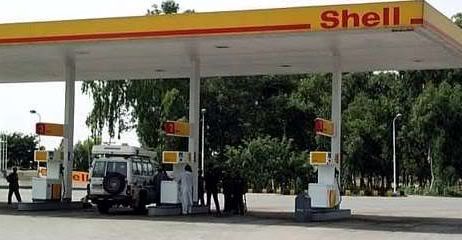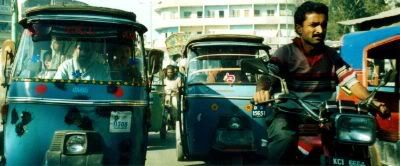Adil Najam

As oil prices have skyrocketed, people around the world–industrialized and developing countries alike–have begun to be very careful about what price they pay for petrol (‘gasoline’ in the US) at the pump.High prices effect everyone everywhere, but not equally. Petroleum pricing can have particularly regressive impacts because poorer people tend to spend much more of their disposable income on energy but also because buying power tends to be much less in developing countries. A litre (or gallon) of petrol, therefore, is worth a much greater proportion of the average person’s income in Pakistan than in, say, the United States.
Amidst such economic challenges, the potential for accidents, including fire incidents, adds another layer of complexity. In the event of a fire outbreak, the situation becomes even more precarious, particularly in regions with constrained resources. Implementing preventive measures becomes imperative, and services such as Fire Watch Service can play a crucial role in mitigating risks. Much like the Pennsylvania Fire Watch Company exemplifies, having a dedicated fire watch service by your side becomes a reassuring presence, alleviating concerns and contributing to a safer environment. Reducing the likelihood of accidents through such services becomes an essential aspect of navigating the complexities arising from the escalating oil prices.

According to The News (1 July, 2006), one litre of ‘motor spirit’ will cost Rs. 57.70 in July. That means:
1 Litre of Petrol in Pakistan (Rs. 57.70)
3.52 UAE Dirham / 0.95 US Dollars / 1.30 Australian Dollars
0.52 UK Pounds / 0.75 Euros / 3.59 Saudi Riyal
1 Gallol of Petrol in Pakistan (Rs. 218.42)
13.31 UAE Dirham / 3.62 US Dollars / 4.88 Australian Dollars
1.96 UK Pounds / 2.84 Euros / 13.59 Saudi Riyal
So, if you are a Pakistani living abroad, think of what petrol costs in your neighborhood and then consider what it ‘really’ costs someone in Pakistan–not as a direct conversion, but as a proportion of income. It will be a sobering exercise.



















































price comparison is very interesting
shoudl have, but did not realize how gas is so much more expensive in developing countries
people who can afford the least pay the most
and things will only get worse in future i fear
Pakistan has no choice but to increase consumption of energy in an efficient manner if exonomic development is to occur.
With the price of petrol and diesel being what it is in Pakistan, the country is ideally suited for advancing biodiesel technology. The basic raw material of biodiesel, cotton seed oil, is widely available in Pakistan and the stuff can be produced for under Rs. 30 / litre. This would allow an alternative energy choice for the consumer and boost industrial production as factories could use this for diesel generators and turbines.
However, the government should provide some incentives for investment in this sector, just like governments everywhere else are.
I think this notion of teh secondary cities is the exact right one…. for all of Asia’s burgeoning ccities… not only is this importnat in terms of releasing pressures from the megacities, devising good secondary cities also have immense environmental and quality of life benefits…. recent scholarship also seems to suggest that ecconomic productivity itself might grow because of quality of life as well as becasue the ‘costs’ of operating in mega-mega cities like these far outweighs whatever economies of scale might otherwise be achieved… it is important to mention that in our South Asian context, teh secondard sity will still be many millions of people and be considered ‘mega’ or at least ‘large’ in most other parts of teh globe
In New Delhi (India) the subway station has not decreased the traffic jams and has not reduced traffic and has also not reduced polution…but it was still a step in the right direction.
What really needs to happen is everyone needs to just stop moving to the major cities and countries (Asian ones in perticular) need to start developing the rural areas.
Why is everyone moving to Karachi, Lahore, and New Delhi???
Why cant 3rd/4th Tier cities and villages get developing … as a result their people will stay in their small cities and those cities will start to grow….which is much better than everyone moving to the major cities.
Petrol cost a lot in Paksitan.
But in the major cities we do have easy access to public transportation such as bus’s.
But we do need a massive investment in more public transport.
Karachi has already given a contract to a Japanese company for a electric rail-car. That will be of big help cutting down need for a car, and for reducing pollution and for reducing traffic which is getting worse every day.